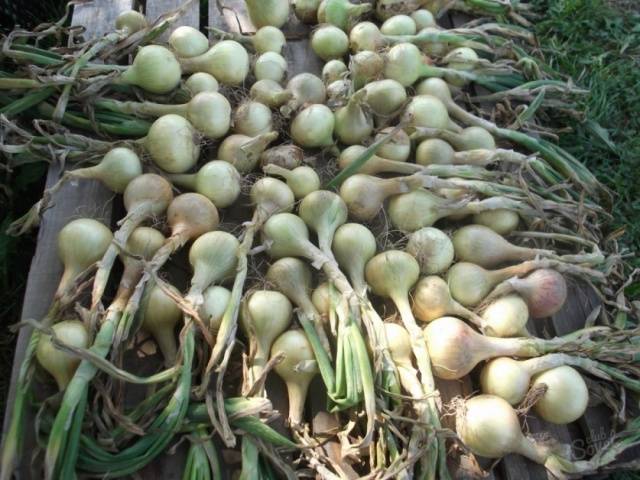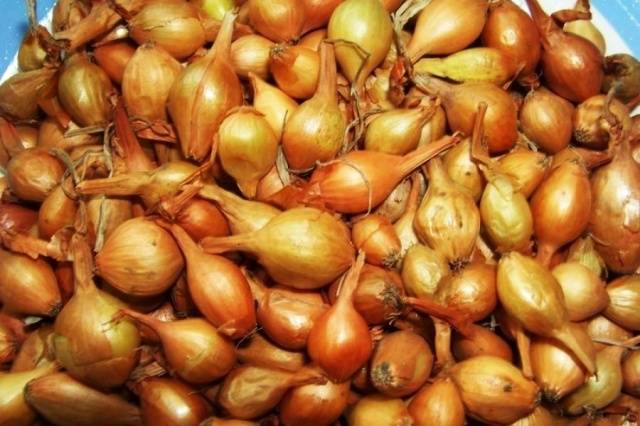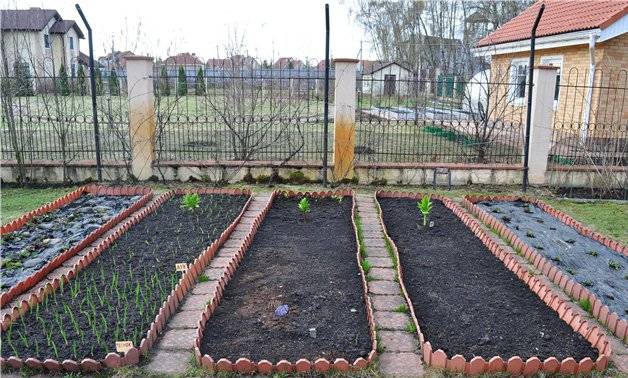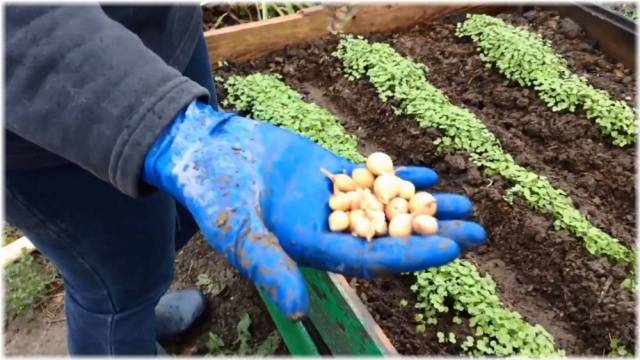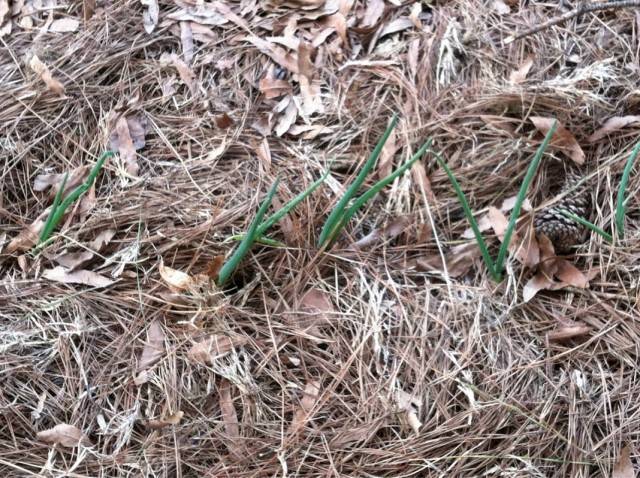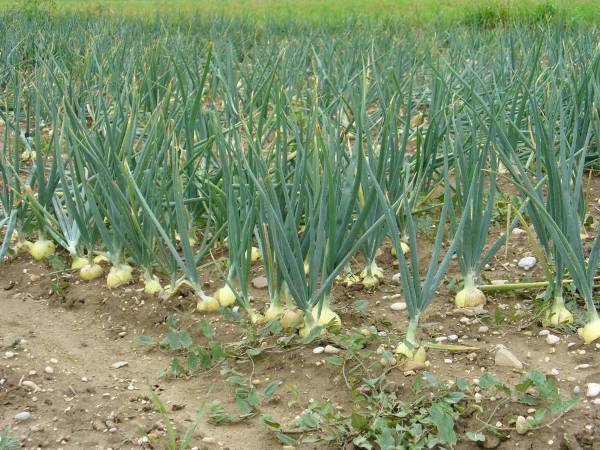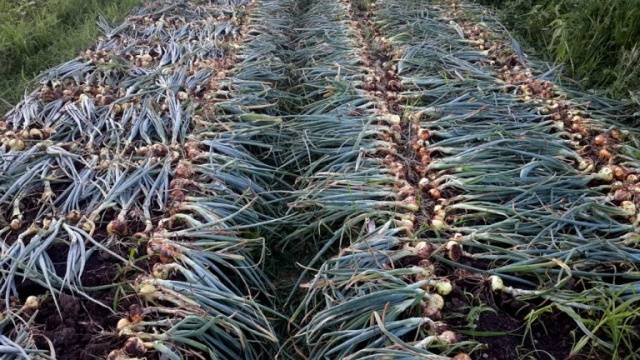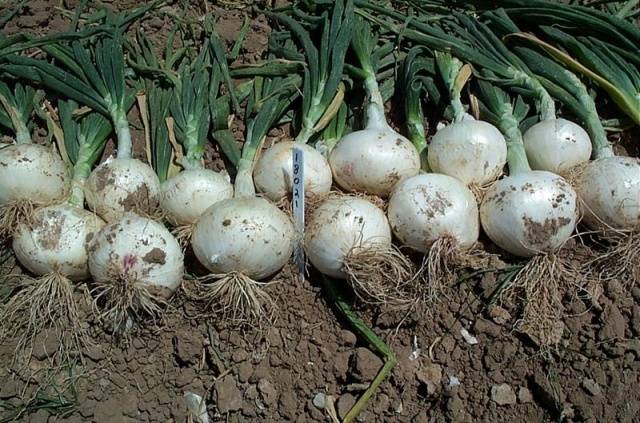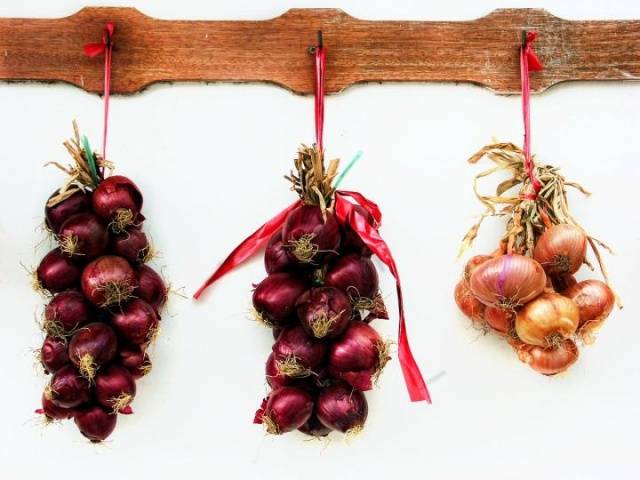Content
In recent years, forgotten methods of growing vegetables have regained popularity among gardeners. One of them is winter onion. Planting onions before winter allows you to get a rich harvest of full-fledged onions one to two months ahead of time, and greens - in early spring. The cheapness of the method also attracts - small, defective specimens of onion sets are selected for planting, which will not withstand long winter storage. But it is important to know how to plant and when to harvest. Winter bow.
Winter onion is also convenient because the onion fly does not have time to hit it, since by the time it appears, it builds up a strong root system. And after harvesting it, you can use the beds again, sowing them with other crops. Tomatoes, carrots, eggplants are best suited for this.
Planting material
The smallest onion sets are selected for planting. It is he who has the properties necessary for growing a good harvest of winter onions:
- if the bulbs are large, they will begin to shoot, and in the small ones there will not be enough nutrients for this;
- during the winter months, the bulbs will receive nutrition from the soil, and in early spring they will begin to form a turnip;
- small bulbs are defective material, they will not withstand storage until spring and will dry out over the winter.
Small onion sets as a planting material become very expensive by autumn. Therefore, it is much easier to grow it yourself. Sowing is carried out in early spring, in the first sunny days, when the earth begins to warm up:
- grooves are prepared with a depth of one and a half to two and a width of several centimeters, between which a distance should be left for convenient weeding;
- the grooves are densely sown with nigella - onion seeds, covered with earth and slightly trampled;
- from above it is better to mulch with humus;
- if the weather is dry, you need to monitor the timely watering of the growing onion sets and loosening the soil;
- you do not need to feed the seeds;
- when digging up the onions, yellowed leaves that have fallen to the ground will show.
The dug onion sets should be left in the garden to dry. Then you should exfoliate dry leaves and sort the bulbs:
- larger ones, with a diameter of more than 1 cm, will go for spring planting - they must be stored in a dark and cool place;
- those that are smaller than this size are just suitable for planting before winter;
- bulbs with a diameter of more than two centimeters will go for food.
Planting and growing winter onions
It is good to use the beds for planting winter onions, on which cabbage, tomatoes, beans or peas, cucumbers, corn or mustard were previously grown. After them, the beds can not be fertilized.
It is difficult to choose the right moment for planting winter onions. Optimal conditions are rather low and, at the same time, the above zero temperature is within 4-6 degrees. Winter onions should have time to take root, but not grow. It is planted in dry weather in shallow grooves up to 5 cm, located at a distance of one and a half dozen centimeters from each other. In the grooves between the bulbs, there should be a gap of several centimeters.
After planting, the beds are covered with soil, and on top - with humus mixed with a small amount of sand. Then the beds are mulched with fallen leaves, straw, tops. Experienced gardeners do not advise using peat as mulch. Due to its low thermal conductivity in spring, it will inhibit the development of young onion sprouts.
We must also remember that not every variety is suitable for winter planting.You need to choose cold-resistant and early maturing, forming a bulb with a short daylight hours. Usually gardeners prefer to plant Dutch varieties before winter. They allow you to shorten the time when can you dig the onionsplanted before winter.
In spring, winter onions do not require special care. It is enough to remove the mulch to facilitate the warming of the soil and its growth, as well as carefully loosen the soil and remove weeds... The frequency of loosening depends on the density of the soil. To accelerate growth, you can cover the beds with foil at night. Feeding with infusion of bird droppings is useful. To scare away pests, it is recommended to sprinkle the beds with ash, it also contains the necessary minerals and is an excellent fertilizer. As the winter onion grows, it is necessary to thin it out - small and weak sprouts will be consumed as green vitamins, and strong sprouts will receive additional space for growth.
Watering requires special attention:
- in early spring, when the ground is full of moisture from melting snow, you do not need to water the winter onions;
- after the soil dries up, regular watering is required to form a good turnip;
- when the bulbs begin to ripen, watering must be stopped, otherwise the crop will not be stored for a long time.
Harvesting winter onions
In order for the crop to be well stored, it is necessary to correctly calculate the time when to harvest winter onions. Gardeners independently determine the period of harvesting winter onions according to the degree of maturity of the plants. Cleaning should be done when the leaves of the plants begin to turn yellow and lie on the ground, and the surface of the bulb is covered with dry scales. A ripe bulb is easily removed from the soil. If the soil is too hard, you can carefully undermine them with a pitchfork, lifting the soil a short distance from the roots. In 10-14 days you need to stop watering the beds.
Sometimes, to accelerate the ripening of winter onions, its feathers are cut, leaving a small tail of a few centimeters. However, this method can lead to the onset of decay processes, so it is undesirable to use it.
Cleaning dates can shift in one direction or another, depending on:
- on the climatic features of the region - the colder the climate, the longer the period of growing winter onions;
- from timely loosening and dressing, which accelerate the ripening of the crop;
- from the weather conditions of the current season - cold and rainy summer lengthens the maturation of plants;
- on the quality of the soil.
Harvest in dry, sunny weather. It cannot be overexposed in the ground, otherwise it will start to take root again, and such an onion is poorly stored. Not all plants ripen on the same day, therefore harvesting onions drags on for several days. However, if it is not possible to dig up the onions gradually, then you can harvest the entire crop in one day, when the bulk of it is already ripe.
Drying the crop
The harvested crop of winter onions must be properly dried in order for it to be well stored:
- after harvesting, the onions are left in the beds for a day or two to dry;
- at the same time, it is disinfected with ultraviolet rays;
- Do not clean the bulbs from adhering soil by mechanical tapping on hard objects so as not to damage them. In rainy weather, you can dry onions in the attic or under a shed;
- during drying, you need to regularly stir and turn the bulbs;
- the condition of the neck of the bulb will help determine the end of drying - it will become completely dry, and the scales will easily peel off;
- if there are specimens with a dense wet neck left, they should not be stored, but it is better to eat them.
If the collection of onions fell on rainy days, and the harvest is wet, you need to choose a well-ventilated place to dry it, otherwise rotting processes will begin in it.
Winter onion storage
Dried onions can be stored in a variety of ways:
- by cutting off the neck, you can fold the whole bow into nets or stockings and hang in the basement;
- trimmed bulbs can be stored in a wooden box - in this case, you need to stir them up from time to time to ensure an even access of oxygen;
- you can braid and hang braids without cutting off the necks - this method is convenient because sprouting bulbs will immediately become noticeable;
- with all storage methods, it is necessary to provide optimal conditions - a temperature from plus one to minus three degrees and a humidity not higher than 80%;
- for the safety of the onion, it is also necessary to provide it with air access, therefore it is unacceptable to store it in plastic bags.
Due to the simplicity and low cost of the method, the growing of winter onions is gaining more and more popularity. If, however, special winter varieties are used for planting before winter, then you can get higher yields of this tasty and healthy vegetable.
